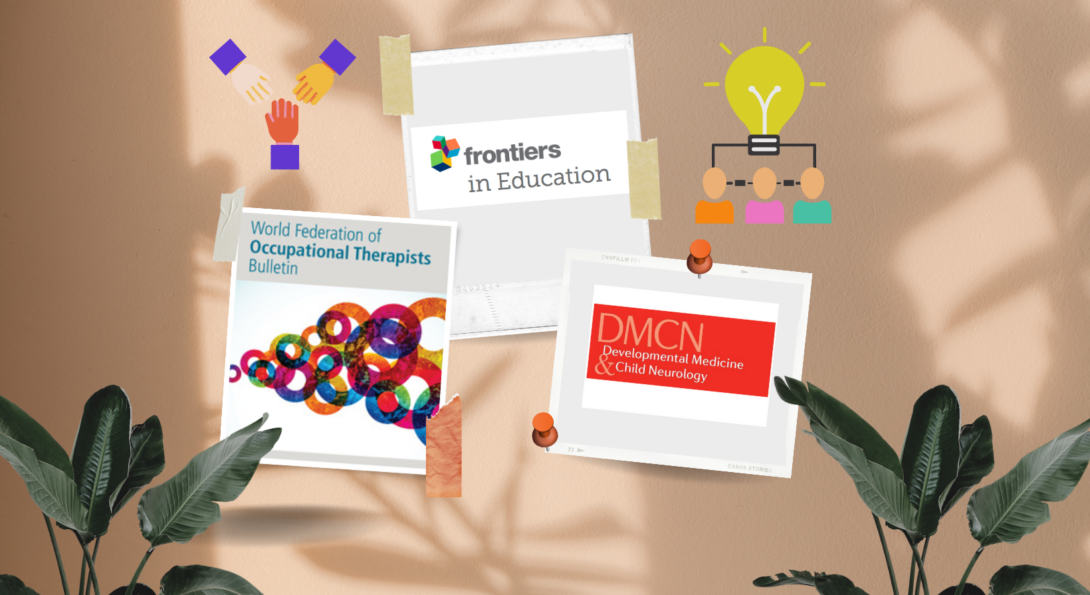Our first ‘three-peat’

CPERL announces its first triple publication alert!
We are excited to share that three of our manuscripts were accepted for publication within one week. Each manuscript is pivotal to advancing CPERL members' training goal; one was related to Dianna's EL-OTD capstone completion, one was related to Vera's dissertation, and one related to Sabrin's foundation for her research program. Together these three studies not only helped advance individual trajectories but contributed to CPERL's research portfolio in different ways.
Vera shares: This dissertation study means a lot to me in many ways. It was a critical piece in challenging ideas of what belongs into the field of rehabilitation and what does not - and I am happy to see that 'Developmental Medicine and Child Neurology' valued the novelty of including children and youth with craniofacial microsomia in rehabilitation research. This research was also a fantastic opportunity for me to learn and apply statistical modeling that I was not familiar with, but really enjoyed learning about.
Sabrin shares: This study marked two 'firsts' in my postdoctoral training phase: 1) using a multi-year population data source; and 2) the privilege of meeting new collaborators who generously shared their time, talents, and efforts to make this study publishable. In light of these new experiences, my story line remains: Understanding pathways to equitable health and educational services for children and youth on the autism spectrum. As I continue to advance my scientific story line, this study will always serve as lessons in persistence, the importance of the science for a population I care so deeply about (i.e., children and youth on the autism spectrum and their families), and that "...every manuscript has a home."
Dianna shares: Having the opportunity to publish my capstone work means so much to me. This work was a true representation of my interests as an OTD student and how I hope to contribute to the profession in the future. Preparing this type of deliverable also came with its own sets of challenges. I had to consider how to present the results in a meaningful and digestible way to practitioners and scholars that was also suitable for publication in a journal. I hope the case report helps nurture conversations about knowledge translation and different approaches to research training in professional programs of study.